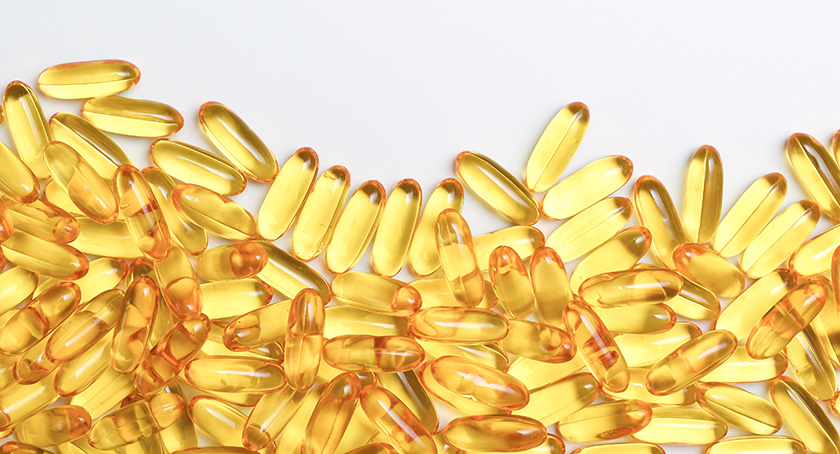Features
Heart Health Dietary Supplement Market Influences & Opportunities
While product sales have grown modestly, the consumer need for cardiovascular support solutions continues to expand.

By: Sean Moloughney

As of 2019, cardiovascular disease was reported to be the top cause of death globally, according to the World Health Organization (WHO). Ischemic heart disease is responsible for 16% of total global deaths; since 2000, this has represented the largest increase in deaths, rising by more than 2 million to total 8.9 million in 2019. Stroke and chronic obstructive pulmonary disease ranked second and third, responsible for approximately 11% and 6% of total deaths, respectively.
According to the U.S. Centers for Disease Control and Prevention (CDC), 4.6% of adults have been diagnosed with coronary heart disease and about half of Americans (47%) have at least one of the three risk factors for heart disease: high blood pressure, high cholesterol, and smoking. Heart disease is the leading cause of death in the U.S. for men, women, and most racial and ethnic groups. It ranks second only to cancer in terms of cause of death for those aged 45-65 years. In those aged 65 and over, heart disease is the number one cause of death. Before COVID-19, these statistics hadn’t changed much since 1980.
Because heart disease has been reported to affect approximately 11% of adults in the U.S., and 35% of those over the age of 75, it continues to be a concern for aging populations. Across all age groups, men are 2% more likely to have heart disease than women; men age 75 and older are 10% more likely than women. Interestingly, in the 18-44 age range, women are 2% percent more likely to be diagnosed with heart disease than men (CDC, 2019).
People can often feel when they are fit in terms of cardiovascular health, according to Sam Michini, vice president of marketing and strategy at Deerland Probiotics & Enzymes, which recently entered an agreement to be acquired by ADM. Deerland’s study of active adults aged 18-65 found that reasonably healthy individuals in their late 30s through mid-50s are seeking products that help mitigate climbing cholesterol levels.
“As more adults become serious about pursuing active lifestyles to achieve physical and mental fitness, supporting cardiovascular function is integral. After all, the more cardiovascularly fit one is, the longer he or she can work out,” Michini said.
Product Trends
Consumers are increasing their cardiovascular fitness and seeking supplementation in that endeavor. Michini said this includes monitoring cholesterol. “This is more than just being free of heart disease. This is a mindset that an optimally functioning cardiovascular system is the engine of physical well-being and prowess.”
The heart health supplements category has remained stable over the past year with 1.2% growth, according to SPINS data. Haleigh Resetar, corporate communications specialist at SPINS, noted that this modest growth is likely due to the current shift toward immunity and stress relief. Once these types of supplements become more integrated into consumer lifestyles, she said the next natural step is heart healthy options, where superfood and whole food supplements are currently the largest growing segments.
COVID-19 still ranks as the number one top health concern, according to a 2021 HealthFocus International report, while cardiovascular/heart disease concerns rank twelfth. But the link between COVID and heart health is real. During the period between March 2020 and January 2021, patients with COVID-19 were found to have nearly 16-times the risk for myocarditis compared with patients who did not have COVID-19 (CDC, 2021).
Viral infections are a common cause of myocarditis, or inflammation of the heart, and some studies have indicated an association between COVID-19 and other cardiac concerns (Clinical Imaging, 2020). Therefore, consumers concerned about immunity may also be seeking supplements and functional foods to support their heart.
With the sale of antioxidant formulations increasing by over 35% (SPINS, 2021), this opens space for combined immune and heart health formulations that address concerns about COVID-19 from both sides.
Other points shaping today’s cardiovascular category, according to ingredient manufacturer NattoPharma, is a shift among younger consumers planning for their future health, and research across all age demographics for heart health ingredients.
Heart health and cholesterol rank within the top functional health benefits consumers are seeking from foods and beverages, behind only weight management and satiation, according to HealthFocus International, with 30% of people choosing foods for these reasons. Women were 5% more likely to choose foods for heart health, and those aged 65 and older were approximately 10% more likely to choose foods for this reason.
Forty-three percent of people were concerned about heart disease, and 30% are personally affected by high cholesterol or high blood pressure, whereas 50% of people always or usually chose foods for healthier cholesterol levels and for general heart health. On the other hand, immune support ranked eighth on the list of functional benefits consumers seek from food, making functional food a notable opportunity for heart health formulations, according to HealthFocus.
“We are seeing more of a proactive and preventative approach to health, and that includes heart health,” said Joy Hendler, marketing associate with Aker BioMarine Antarctic US. “I think that the health/wellness industry is continuing to evolve constantly, especially as we move towards a post-COVID world.”
The result is more opportunity for companies to work closely with customers and partners to bring novel products to the market.
Delivery Formats: Functional Food on the Rise
When it comes to heart-specific formulations, the biggest decline, according to SPINS data, was found for pre- and probiotics, protein, and meal replacement powders, as well as green food supplements. As a category, however, heart-healthy superfood and whole food supplements showed significant growth of 28.7%, thanks to a 44% increase in the superfruit/juice concentrates category. When it comes to heart health, people are increasingly looking for their food to be their medicine.
Functional foods are a notable category for heart health claims. The U.S. is the most active market for heart health food and beverage launches, holding 24% of the global market share, according to Innova Market Insights. The market research firm noted the cereals category tops the global list with a 22% share, followed by sports nutrition (14%) and snacks (13%). Meanwhile, sports nutrition is the fastest growing heart health category in terms of global launches, averaging 28% growth annually between 2016 and 2020.
Cal Bewicke, CEO of Ethical Naturals Inc. (ENI) said that although capsules remain the most popular supplement delivery system, the increased demand for alternatives, such as drinks, requires ingredients be engineered
accordingly. With this in mind, ENI has engineered its ResveraTrue in a neutral off-white color without a strong taste, making it easy to formulate in functional food and beverages.
Likewise, Artemis International’s AroniaCraft water-soluble aronia berry extract offers cardiovascular benefits and is suitable for a wide range of supplement and food formulations while adding a natural purple-red hue.
“The flavor profile works well for products that need to be formulated to taste good as well as offer studied health benefits,” said Melanie Bush, vice president of science and research with Artemis International, Inc.
Although NattoPharma offers its vitamin K2 as MK-7 in four different formats, Elise Kaiser, vice president of American sales said the ingredient, which mirrors the vitamin K found in food sources, has garnered significant interest from both brand owners and consumers, reflecting a desire for a full spectrum of health benefits found in foods.
While consumers want to include more fruits and vegetables in their diet, non-perishable, on-the-go formulations such as gummies, beverages, bars, and pills fulfill the demand for convenience. Leslie Gallo, president of Artemis International, said this has been particularly true throughout the pandemic where healthier choices have not been so simple, and where the demand for more stay-at-home shopping options—many of which do not include perishable fruits and vegetables—have increased.
Top heart health claims used in the food and beverage industry include, “heart healthy,” “may help reduce the risk of heart disease,” “supports healthy cholesterol levels,” and “supports cardiovascular health,” according to Innova.
“Cardiovascular health is such a broad category, offering brands myriad opportunities to capture consumer’s interest and dollars,” Gallo said.
Combining Claims to Meet Consumer Demand
SPINS data showed an 8.3% increase in sales over the past year for condition-specific heart health formulas. Specialty and children’s formulations have shown the highest growth in the channel (232% and 486%, respectively), representing a need and desire for supplementation outside of traditional formulations.
“Heart health is not a one-ingredient solution,” Kaiser said. “The most impactful products offer a variety of synergistic ingredients, all working to the same end, in delivery formats that meet consumers’ needs.”
Kaiser said traditional dietary supplements (tablets and capsules) are still the most popular delivery format, but these formulations are expanding to include more ingredients that work synergistically together, as with functional food.
For example, she said the use of vitamin K2 complements traditional ingredients for heart health, offering support for arterial calcification where omega-3s do not, and working with vitamin D3 to activate the important cardiovascular proteins it synthesizes. In other words, combining ingredients does more than just fill a consumer demand for convenience, it can also fill important holes for improved health outcomes.
“We know that increased intake of EPA and DHA omega-3s reduces cardiovascular risk, so heart health formulations that contain these nutrients make sense,” added Elana Natker, director of consumer and health professional communications for the Global Organization for EPA and DHA Omega-3s (GOED).
Although probiotics are notorious for their instability during manufacturing, ingredients that push the limits of what’s been done open up space for new formulations and combinations. Deerland’s DE111 probiotic spores are hardy, resilient, and flexible, able to endure a wide range of temperature changes. The ingredient doesn’t require refrigeration, so it can be used in supplements, foods and beverages, and can even be stored at room temperature for up to 24 months, further improving formulation options.
“Pill fatigue is real for many,” said Michini. “But hydration and quenching thirst are never a hardship.”
Some of the health claims most commonly combined with heart health in the U.S. food and beverage industry include, “gluten-free,” “high source of fiber,” and “high source of protein,” according to Innova.
“Consumers appreciate multi-functional products, like the daily multivitamin providing the full range of vitamins and minerals in one pill,” Gallo said. “BerryDefense offers a blend of elderberry, aronia, and black currant extracts that supports immune, heart, and vision—three increasingly challenged areas of health for today’s consumer. We want to be healthier and we want it to be easier to be healthy.”
As research surrounding the gut health-heart health connection increases, it has created more product development with probiotic products such as kombucha and shots, making it easier for consumers to make healthy choices, Gallo added.
Variety in products, multiple delivery systems, flavor choices, and increasing online purchase options—including same-day or next-day delivery—caters to today’s consumer. Other consumer needs include a move toward more vegetarian options, as well as more highly concentrated formulations.
SPINS noted a shift to plant-derived omega-3s, which increased by more than 10% over the past year. Although krill oil has been a top seller for several quarters, its sales have dipped year over year by 13%, according to SPINS. As plant-based options increase in demand, flax seed oil is also seeing growth (15.5%)
Delivering Science & Sustainability
Omega-3s continue to meet consumer needs by shifting to plant-based and sustainable sources.
“The science of omega-3s is the same, but how we message it needs to adapt based on the audience,” Natker said. “For older adults, we can focus on the specific cardiovascular outcomes measured in the research. For younger adults, we focus more on overall health and lifestyle, since that’s what resonates best with them.”
Regardless of format, claims backed by science are at the heart of the contemporary wellness industry.
“Today’s consumers are more savvy than in the past, and often want to know more about ingredients, and the companies that make them,” said Bewicke. “They want to know there is research backing up health claims, and expect to see details about how a company ensures quality. They also want to see a commitment to sustainability, particularly on the part of younger consumers. The market is adapting by increased transparency to answer all these questions and stay ahead of what the consumer may ask about next.”
Companies like Indena meet this demand for sustainability in ingredients such as its recently launched Enovita Organic, which utilizes antioxidant-rich grape seeds, a byproduct of wine production.
Research and clinical studies can help fill holes in existing health options. For example, a 2004 Rotterdam Study and 2008 Prospect-EPIC Study found that a high dietary intake of vitamin K2 offered strong reduction in cardiovascular risk while decreasing arterial stiffness in healthy post-menopausal women, whereas traditionally prescribed cholesterol medications inhibit vitamin K2 synthesis.
Kaiser said suppliers like NattoPharma increase the opportunity for brands to incorporate ingredients like vitamin K2 into a broad range of delivery methods, thanks to clinically proven ingredients that are suitable to a variety of formats that appeal to a broader range of end users.
“Consumers are more educated than ever,” Kaiser said. “They are looking for clinically validated ingredients with proven health benefits. I think we are seeing this because people have a desire for science-based trusted information, and we are able to find the information for ourselves online and make our own decisions.”
Spotlight on Ingredients
After DHA and flaxseed, ingredients seeing the most growth in the heart health category include garlic and a resurgence of ubiquinol/CoQ10, according to SPINS data. Vitamins and minerals for heart health also remain strong with a total 5.2% increase. Minerals top the chart in growth at 28.3%, followed by vitamins A, D and K at 14.7%. On the other hand, multivitamin formulations for cardiovascular health dropped by almost 30% this past year reflecting a continued desire for simpler ingredients more closely mirroring food sources.
As a whole, botanicals topped the functional ingredient category for heart health in U.S. food and beverage launches, followed by fruit ingredients and grains. Caffeine came in as the number one ingredient in U.S. food and beverage launches, according to Innova.
GOED has found increased demand for omega-3s as an ingredient in the Asia-Pacific region—and China in particular where cardiovascular disease is the leading cause of death. The approval of omega-3 pharmaceuticals for reducing triglycerides has driven more global interest, Natker added.
Ultimately, as with the increased demand for more vegetarian options, sourcing and sustainability continue to remain important to consumers. For example, ResveraTrue, a 98% natural resveratrol utilized for anti-inflammatory and cardiovascular benefits is coming into its own as a supplement ingredient in lieu of chemically-derived resveratrol, Bewicke said. “Nature verified by science is always our guiding principle.”
Backed By Science
The ingredients that follow represent a sample of nutraceuticals shown to support heart health.
Omega-3s. “Omega-3s in particular have been shown to support heart health in a variety of ways. They reduce triglycerides, support normal blood pressure, reduce risk for heart attack (including fatal heart attack), and reduce risk for coronary heart disease events (including death), among others,” Natker said.
“EPA and DHA omega-3s are the subject of 40,000 published papers, almost 4,000 of which are human clinicals,” she continued. “So it’s easy for suppliers to offer a scientifically supported supplement product. The science keeps growing every day, so the future looks bright for the industry.”
High in omega-3s, phospholipids, choline, and astaxanthin, krill oil works to support the entire cardiovascular system, including blood vessels. It has been shown to lower risk factors for heart disease, while providing choline, an essential nutrient for cell structure, function, and signaling important for heart health. In general, omega-3s are being considered as baseline nutrients for health and well-being, taken alongside the tried and true multivitamin, Hendler said.
Probiotics. Deerland’s B. subtilis probiotic, DE111, has been shown to support digestive and immune health by preventing the growth of undesirable bacteria. It also produces short chain fatty acids to support the gut by managing inflammation, metabolizing cholesterol, and reducing overall LDL by inhibiting the synthesis of liver cholesterol. In addition, research has discovered that approximately 70% of the immune system thrives and works in the gut (Microbiology, 2021).
In a study of 43 adults, it was found that daily supplementation of DE111 supports normal cholesterol levels, while also improving other heart health indicators.
Antioxidants. As a developer of polyphenol-based ingredients, ENI noted the many studies that link polyphenol consumption to positive heart health benefits. A 2014 study published in Nutrition, Metabolism and Cardiovascular Diseases found a 46% reduction in cardiovascular disease with highest intake of polyphenols compared to lowest intake. The company’s polyphenol-C formula contains non-GMO vitamin C and standardized polyphenols from six fruits and berries.
The heart health label claims of ENI’s VinCare (patented, GRAS-affirmed, whole grape extract) is supported by a 2014 clinical study published in the Journal of Functional Food.
A recent human study funded by Indena showed that Enovita grape seed extract can modulate blood pressure in healthy people and borderline subjects, confirming the results also in people with higher cardiovascular risk (Nutrients, 2021).
Daily supplementation with chokeberry can reduce both blood pressure and cholesterol, particularly in the vulnerable over 50 age group (Dietary Supplements, 2021). Aronia, commonly known as chokeberry, stands out among the dark berry group as the “heart health berry,” Bush said. It favorably impacts markers for cardiovascular health. In general, berry flavonoids regulate blood pressure, likely due in part to their antioxidant and anti-inflammatory properties.
“When selecting a heart health ingredient, it’s important to know where the ingredients are coming from,” Hendler said. “In the natural products space, where transparency and openness are key, product traceability helps demonstrate a company’s responsibility and trustworthiness. Consumers have access to a tremendous amount of information, and it’s important to increase knowledge sharing and lead with transparency.”




















